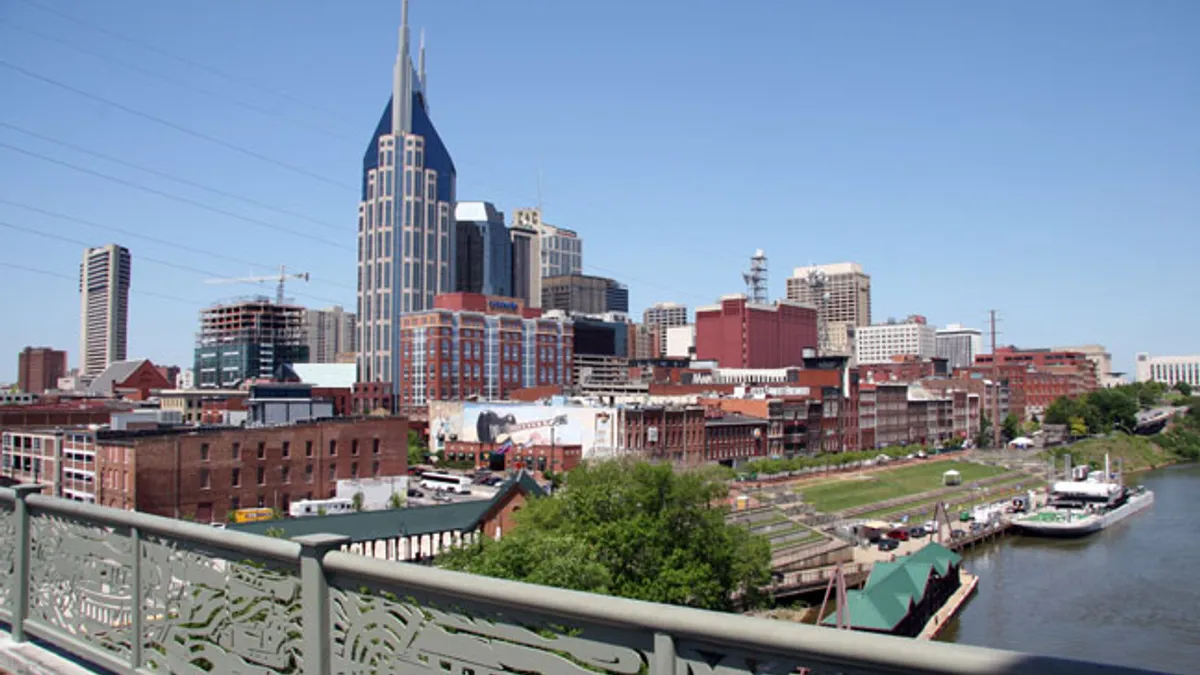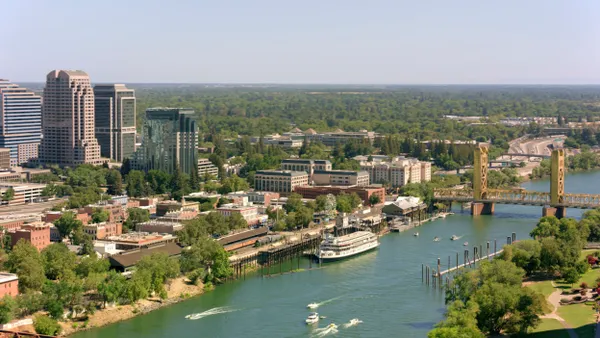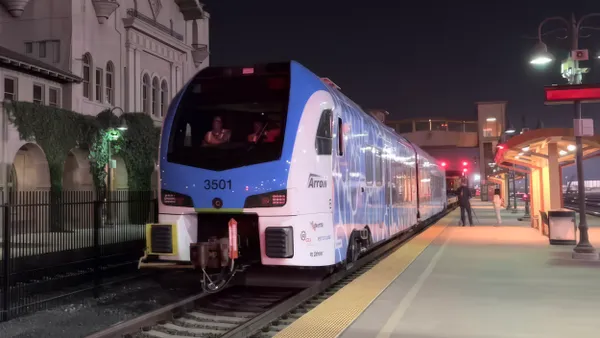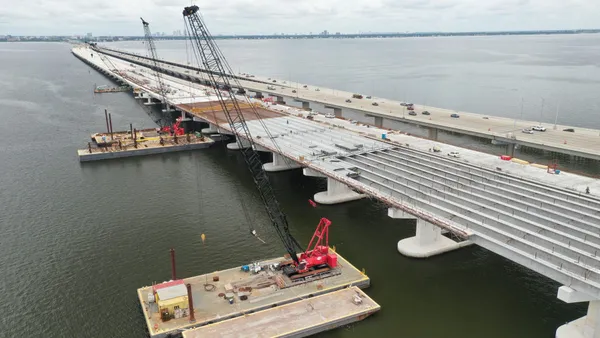Dive Brief:
- Nashville, TN voters emphatically rejected the city’s $5.2 billion transit plan in a referendum Tuesday. The Tennessean reports the measure was rejected by about 64% of the 110,000-plus voters.
- In a statement posted to Twitter, Mayor David Briley warned the city’s "transportation problems are not going away; in fact, we know they’re only going to get more challenging as we continue to grow."
- Local group NoTax4Tracks, which opposed the plan, congratulated their opponents on the race and promised to keep the debate going. "We pledge to be part of a constructive conversation on doing the things that can help congestion now," the group wrote on Facebook. "And we pledge to start now."
Dive Insight:
After a referendum campaign roiled by the release of an alternative plan by Councilman Robert Swope, accusations of dirty tricks and the role of so-called "dark money" potentially connected to the influential Koch brothers, the defeat will sting for the plan’s supporters, which included a large swath of the business community.
Already, those in favor of the plan are concerned that its defeat in the referendum could spell the death knell for Nashville’s bid for Amazon’s HQ2. The online retail giant said access to reliable mass transit is a key factor, and while Nashville remains one of the 20 short-listed cities, its Chamber of Commerce is worried this loss at the ballot box will undermine its bid. "It does set us back image-wise for the business world," Lipscomb University business professor Andy Borchers told The Tennessean. "It is not fatal, but it certainly is not the step forward it could be."
Former Mayor Megan Barry, who resigned after pleading guilty to felony theft, remained a major proponent of the transit plan that she originally proposed, and previously took opponents to task as she addressed various "transit myths." In a statement, Barry called the result a "disappointing setback for better transit options in Nashville."
"There will never be the perfect silver bullet to improving transportation options, but this plan was the most comprehensive and well-rounded that Nashville could offer," she continued.
In the immediate aftermath of the plan’s defeat, opponents and supporters alike have promised to work to produce an alternative to the proposal that would have raised four taxes to pay for light rail, bus rapid transit and a revamp of the city’s bus system in the largest transportation project in city history. In an indication of how some view the city’s transportation as a regional issue, Rep. Diane Black, R-6, pledged to release a plan of her own in the coming days. "Now it’s time to get to work on a real, strategic regional plan to reduce congestion in downtown Nashville without raising taxes on working families," she said in a statement.











